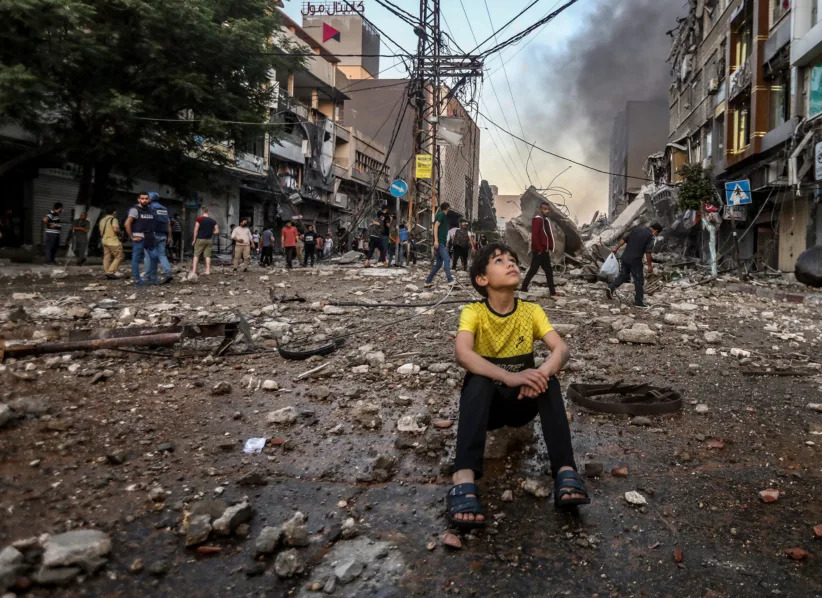Macron’s Bold Shift: France Becomes First G7 Country to Recognize Palestine as Statehood Push Gains Global Steam

More than 140 countries have recognized Palestine as a state since 1988.
In the past year alone, momentum surged. Ireland, Norway, Spain, Slovenia, Armenia, Jamaica and Barbados extended recognition between May and July 2025. Others, like China, Brazil and South Africa, had already taken that step.
Yet, the war in Gaza continues.
Despite global support, the impact of these recognitions on the Israel-led offensive has been limited. The death toll mounts, and humanitarian corridors remain blocked. For many leaders, including French President Emmanuel Macron, that’s no longer acceptable.
His announcement makes France the first G7 country to formally recognize Palestinian statehood. Macron hopes the move will reignite diplomatic urgency for a two-state solution — even if it places him at odds with Israel, the United States and parts of his nation.
A Calculated Break from the Past
Macron’s decision wasn’t telegraphed. Even French diplomats were caught off guard when he posted a letter on X to Palestinian Authority President Mahmoud Abbas. The message, hand-delivered by France’s consul general in Jerusalem, declared France’s support for Palestinian sovereignty.
In doing so, Macron ended decades of French hesitation. Previous leaders had tied recognition to broader regional progress — particularly peace talks and the disarmament of Hamas. But Macron has grown disillusioned with that approach.
“Images of starving Gaza children, at a moment when the United States will not pressure Israel, seems to have produced a feeling in Macron that this was no longer possible,” said Gilles Kepel, a leading French expert on the Middle East. “He believes this is the only way to stop the killing.”
Macron’s move was praised by Hamas, which called it a “positive step in the right direction.” France’s foreign minister, Jean-Noël Barrot, quickly clarified that the decision was aimed at isolating Hamas by backing diplomacy over destruction.
But the backlash was swift. CRIF, the council representing France’s half-million-strong Jewish community, called the recognition “a moral transgression, a diplomatic error and a political danger.” The group said the move undermined Israel at a moment when hostages remain in Hamas custody.
Reverberations Across the Atlantic
President Donald Trump dismissed Macron’s declaration outright. “What he says doesn’t matter,” Trump told reporters. “That statement doesn’t carry any weight.”
Charles Kushner, the newly appointed U.S. ambassador to France, took to X to denounce the recognition as “a gift to Hamas and a blow to peace.” He added that he hoped to “change Macron’s mind before September,” when the French president is expected to make his case at the U.N. General Assembly.
Even Mike Huckabee, Trump’s former ambassador to Israel, ridiculed the announcement. “I can now exclusively disclose that France will offer the French Riviera & the new nation will be called ‘Franc-en-Stine,’” he posted.
Their comments reveal deeper tensions. Since Hamas attacked Israel in October 2023, Israel has launched a sustained military campaign in Gaza. The U.S. continues to back Israel’s right to defend itself, while much of Europe has grown critical of what it sees as a disproportionate response.
Macron, increasingly distant from the U.S. on foreign policy, is attempting to lead Europe in a different direction.
Recognition Alone Won’t End the War
While Macron’s gesture is significant, analysts agree: it won’t end the war.
Israel’s leadership remains focused on security and sees European recognition of Palestine as meaningless without concrete reforms inside Palestinian territories. Prime Minister Benjamin Netanyahu continues to enjoy backing from the U.S. and key Arab states pursuing normalization with Israel.
Still, Macron’s recognition has global implications.
It adds France to a growing bloc of countries pressing Israel to accept a two-state future. Over 75 percent of United Nations member states now recognize Palestine. Three of five U.N. Security Council members — France, China and Russia — have backed statehood, isolating the U.S. and U.K. on the matter.
British Prime Minister Keir Starmer has resisted recognition but acknowledged the “unspeakable and indefensible” suffering in Gaza. In Australia, pressure is mounting on Prime Minister Anthony Albanese to follow suit.
As Macron prepares to push the issue at the U.N., France will co-host a global conference on Gaza with Saudi Arabia. The summit will focus on cease-fire negotiations, postwar reconstruction, and a framework for peaceful coexistence.
Barrot, France’s foreign minister, did not mince words: “There is no longer any justification for the Israeli army’s military operations in Gaza. This offensive will only exacerbate an already catastrophic situation.”




